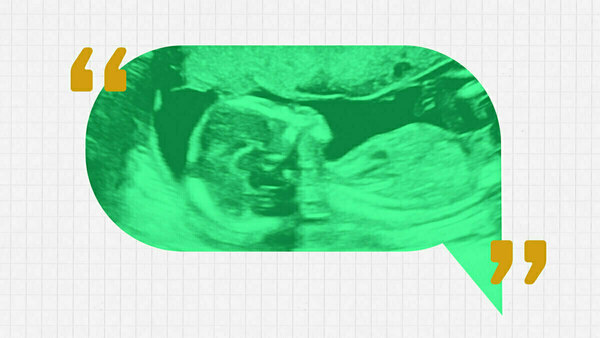The Institute for Educational Initiatives at Notre Dame Launches Free Math App to Help Teachers Strengthen Students’ Understanding of Numbers and Operations
The Number Sense Assessment app gives educators quick, research-based insights to target instruction and improve student outcomes
Notre Dame, IN — Researchers at the Institute for Educational Initiatives at the University of Notre Dame have launched the Number Sense Assessment, a free, research-based math app that helps teachers in grades 3 and up quickly identify gaps in student understanding and strengthen instruction in core math concepts.
Backed by a $496,337 grant from the National Science Foundation and developed in collaboration with the Lucy Family Institute for Data & Society, the assessment has already been used in more than 25 schools, reaching over 2,000 students. It is also being implemented in ACE Teaching Fellows partner schools and through Tutor-ND.
The app reflects years of research on mathematical cognition and offers an easy, practical way for teachers to boost math understanding—right from their classrooms.
“The teachers and math educators we work with all tell us how important developing their students’ number sense is. However, they haven’t been able to efficiently see if their students are making any progress towards that goal,” said Patrick Kirkland, Assistant Professor of the Practice in the Institute for Educational Initiatives and lead developer of the app. “The Number Sense Assessment addresses that gap—and gives educators actionable insights, at no cost, without adding to their already full plates.”
Designed for real-world use, the app takes just 10 minutes to administer and provides immediate feedback. It presents students in grades 3rd grade and up with mental math tasks that measure not just computational skills, but deep conceptual understanding and flexibility with rational numbers and operations. Teachers receive easy-to-read reports highlighting student strengths, misconceptions, and next steps—along with access to research-backed instructional resources.
A recent article from The Hechinger Report (“The Building Blocks of Math That Students Need to Excel”) underscores the growing importance of number sense in setting students up for long-term success in math.
“We’re proud to support this collaboration, which brings together interdisciplinary research and real classroom impact,” said Nitesh Chawla, Founding Director of the Lucy Family Institute for Data & Society. “The Number Sense Assessment app reflects how data-informed tools can empower educators and expand opportunity—especially for students who may otherwise struggle in silence.”
Whether used at the beginning of the year, mid-semester, or as part of summer learning, the app helps teachers tailor instruction to student needs with minimal onboarding, no extra materials, and zero cost.
The Number Sense Assessment app is now freely available to educators nationwide at: numbersense.nd.edu
About the Lucy Family Institute for Data & Society
Guided by Notre Dame’s Mission, the Lucy Family Institute adventurously collaborates on advancing data-driven and artificial intelligence (AI) convergence research, translational solutions, and education to ethically address society’s vexing problems. As an innovative nexus of academia, industry, and the public, the Institute also fosters data science and AI access to strengthen diverse and inclusive capacity building within communities.
Learn more at lucyinstitute.nd.edu.
About the Institute for Educational Initiatives (IEI)
Founded in 1996, the Institute for Educational Initiatives (IEI) at the University of Notre Dame is home to more than two dozen programs that strive to improve education for all children—particularly those historically underserved. Through teaching, research, and outreach, IEI forms educators and scholars who support human dignity and advance the common good. Anchored in the values of Notre Dame, IEI pays special—but not exclusive—attention to Catholic schools as engines of academic excellence and integral human formation.
Learn more at iei.nd.edu.
Latest Research
- Women of African ancestry may be biologically predisposed to early onset or aggressive breast cancersResearch from the University of Notre Dame is shedding light on why Black women are likely to have early-onset or more aggressive subtypes of breast cancer. The study published in iScience found that a population of cells in breast tissues, dubbed PZP cells, send cues that prompt behavioral changes that could promote breast cancer growth.
- Doctoral student Joryán Hernández to receive inaugural Sr. Dianna Ortiz, OSU Peacemaker AwardJoryán Hernández, a peace studies and theology doctoral student at the University of Notre Dame, was tapped as the first-ever recipient of the Sr. Dianna Ortiz, OSU Peacemaker Award from Pax…
- U.S. Senator Todd Young on bridge-building in Congress and Notre Dame’s role in strengthening civil discourseThe University’s home state Senator discusses the importance of fostering common ground, on Capitol Hill and on campus
- Notre Dame researchers to shed light on the Brazilian Amazon, conflict resolution, microplastics, and moreNotre Dame Research (NDR) has selected five awardees of the Research and Scholarship Program – Regular Grant (RSP-RG) and five awardees of the Research…
- First impressions count: How babies are talked about during ultrasounds impacts parent perceptions, caregiving relationshipPsychologist Kaylin Hill studied the impact of a parent’s first impression of their baby during an ultrasound exam. The words used by the medical professional to describe the baby (positive or negative) influence how the parents perceive their baby, relate to them after they're born and even how that child behaves as a toddler. The research has broad implications for how we train medical professionals to interact with expectant parents, as well as how we care for parents during the perinatal period when they are most susceptible to depression.
- Researchers at Notre Dame detect ‘forever chemicals’ in reusable feminine hygiene productsWhen a reporter with the Sierra Club magazine asked Graham Peaslee, a physicist at the University of Notre Dame, to test several different samples of unused menstrual underwear for per- and polyfluoroalkyl substances (PFAS) in 2019, the results fueled concern over chemical exposure in feminine hygiene products — which ultimately ended up in a $5 million lawsuit against the period and incontinence underwear brand Thinx. Then in 2023, the New York Times asked Peaslee to test 44 additional period and incontinence products for PFAS, a class of toxic fluorinated compounds inherently repellent to oil, water, soil and stains, and known as “forever chemicals” for their exceptionally strong chemical and thermal stability. Measurable PFAS were found in some layers of many of the products tested — some low enough to suggest the chemicals may have transferred off packaging materials, while others contained higher concentrations, suggesting the chemicals were intentionally used during the manufacturing process. In the meantime, another group of researchers published a study that found PFAS in single-use period products, leading Peaslee and his lab to widen their investigation into all sorts of reusable feminine hygiene products — often viewed as an eco-friendly option by consumers. Now, the results of that study have been published in Environmental Science & Technology Letters.













